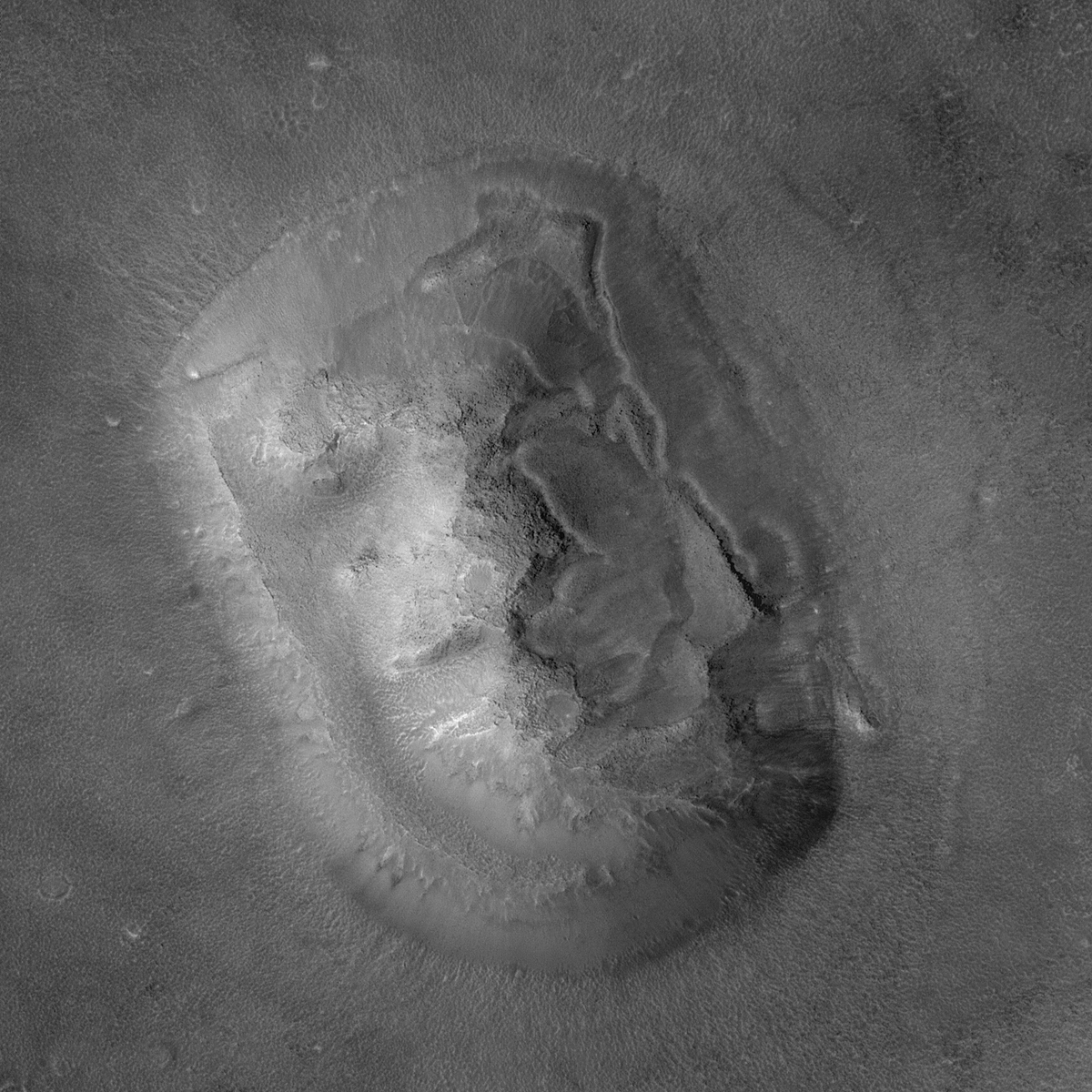Yoric wrote:I want to believe the US landed on the moon, but in this photo, Buzz Aldrin, Apollo 11, it is completely impossible for nature to draw the shadow of a straight line across someone's leg.
There is no shadow of a straight line on Buzz Aldrin's leg. That's a grid mark. You can see that those grid marks extend all over the picture to the right, evenly spaced. There is a second row of grid marks below the top one. There is an upper row of grid marks too, but you can't see them against the blackness of space. One is visible against the Moon lander, though.
Grid marks were common in early astronomy imagery. You can see rows of evenly spaced large black dots running diagonally across the infamous "face on Mars" image from 1976:
In a much later image of "the Face on Mars", revealing it not to be a face, there are no grid marks, since they are hardly ever seen in modern astrophotography:
You can be sure that US astronauts landed on the Moon, Yoric. Going to the Moon is very, very hard, very, very expensive and very, very risky. But it is in no way impossible. The Moon is ridiculously close to the Earth, after all, compared with all other objects in space apart from odd asteroids and meteors zipping by. The United States met the costs of sending astronauts to the Moon by making the average American taxpayer shell out incredible amounts of money that went straight into the American moon landing project, the Apollo. As for the risks, Apollo 13 failed and the three astronauts aboard could so easily have been killed, but they were saved through a combination of luck and skill.
Why was the moon landing project abandoned? Why are there no bases on the Moon today, 41 years after the first Moon landing?
Easy. The Moon landing project was never really about exploring the Moon or doing honest lunar astronomy. It was a prestige project that was, ultimately, about beating the Soviet Union and showing them who was top dog in space. Once the United States had won the space race over the Soviet Union the American government people lost interest in the Moon, because the Moon is, frankly, a rather boring place. And sending astronauts there is, as I said, incredibly costly and risky, and the American tax payers may not have wanted to finance a further exploration of the Moon, let alone a "colonisation" of the Moon in the form of establishing bases there.
Ann
 Moonquakes Surprisingly Common
Moonquakes Surprisingly Common

